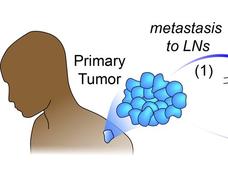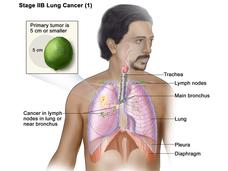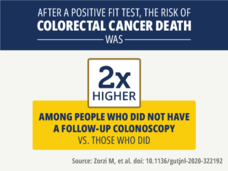May 2022 - Cancer Currents Blog
-
Cancer in Lymph Nodes May Help Tumors Spread by Enlisting Immune Cells
Cancer often spreads to the lymph nodes, but it has never been clear why. A new study in mice suggests lymph node invasion helps the primary tumor spread, or metastasize, to other organs.
-
New Drugs Raise Old Questions about Treating Cancer during Pregnancy
A pregnant woman with Hodgkin lymphoma was treated successfully with an immunotherapy drug. The report that the treatment was safe and effective is leading researchers to start taking a closer look at new forms of cancer drugs in pregnant people.
-
For Early-Stage Lung Cancer, Nivolumab and Chemo before Surgery Proves Effective
Giving people with early-stage lung cancer the immunotherapy drug nivolumab (Opdivo) and chemotherapy before surgery can substantially delay the progression or return of their cancer, a large clinical trial found.
-
Working to Close the Cancer Screening Gap Caused by COVID
Many hospitals and community health centers are trying to increase cancer screening rates after the COVID pandemic caused them to plummet. The largest effort aims to add a total of 70,000 additional monthly screening tests over a 6-month period.
-
Ivosidenib with Chemotherapy New Option for Some People with AML
For some people with acute myeloid leukemia (AML) that has a mutation in the IDH1 gene, combining ivosidenib (Tibsovo) with the chemotherapy drug azacitidine may be a new treatment option, according to results from a large clinical trial.
-
Colonoscopy after Positive FIT Test Cuts Risk of Colorectal Cancer Death
People who had a positive FIT result (signs of blood in the stool) but didn’t get a follow-up colonoscopy were twice as likely to die of colorectal cancer as those who did get a colonoscopy, a new study found.
-
Study Adds to Debate about Screening for Melanoma
Regular skin cancer screening leads to many diagnoses of very early-stage melanomas, results from a new study suggest. The results add to a debate about whether screening is fueling an overdiagnosis of melanoma in the United States.






